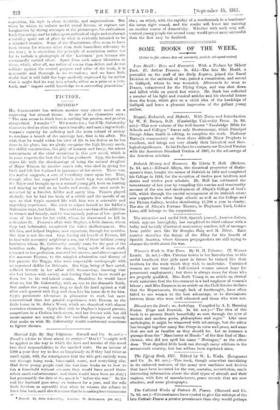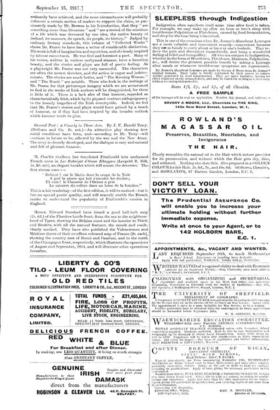l'he Collected Works of Padraio II. Pearce. (Mammal and Co.
7s. 6d. net.)—Cireumatances have tended to give the writing, of the late Padraie Pearao a greater prominence than they would perhepe
-ordinarily have achieved, and the same circumstances will-probably influence a -certain section of readers to support the claim, as pas- sionately made by Mr. Browne in his Introduction, that they " are romething more than literature " and " are a record of the emotions of a life which was devoured by one idea, the native beauty of Ireland, its manners, its speech, its people, its history." Judged by ordinary literary standards, this volume of "Collected Works" shows Mr. Pearse to have been a writer of considerable distinction. His work is full of imagination and mysticism, and obviously inspired by intense earnestness. He was first and foremost a poet. Many of his verses, written in curious unrhymed stanzas, have a haunting beauty, and the stories and playa are full of poetic feeling. As a playa-right Mr. Pearse was not very successful. The characters are often the merest sketches, And the action is vague and indeter. minute. The stories are much better, and " The Keening Woman " and "The Roads " are notable. Those who look in the writings of Mr. Pearse for that picturesque imagery which we are accustomed to find in the works of Irish authors will be disappointed, for there is little of it. There is a lack also of that humour, regarded as characteristically Irish, which by its piquant contrast adds poignancy to the homely tragedies of the Irish countryside. Indeed, we feel that Mr. Pearse's stories and plays would have gained by a touch of humour, or if they had been inspired by the broader outlook which humour tends to give.



























 Previous page
Previous page